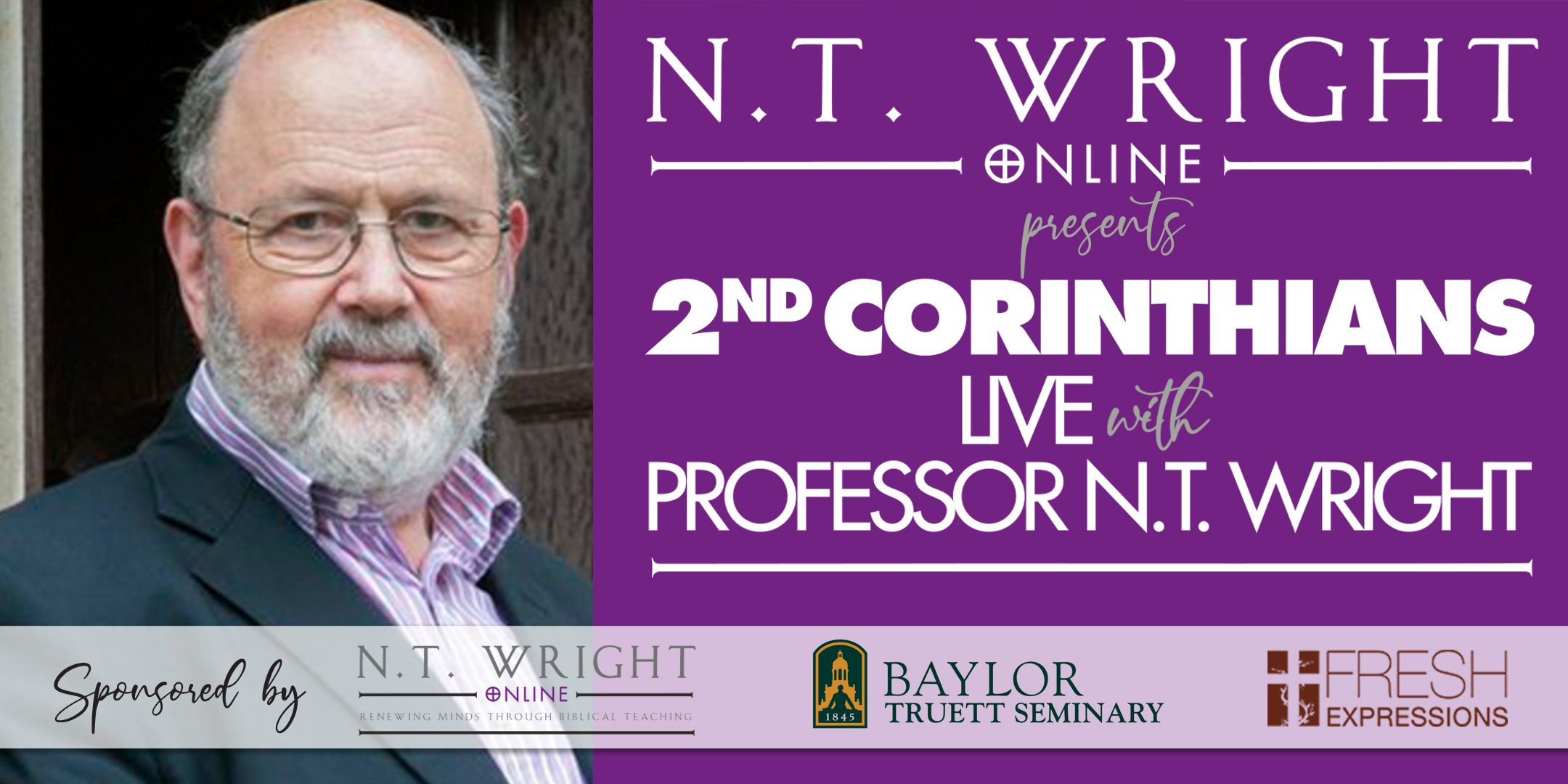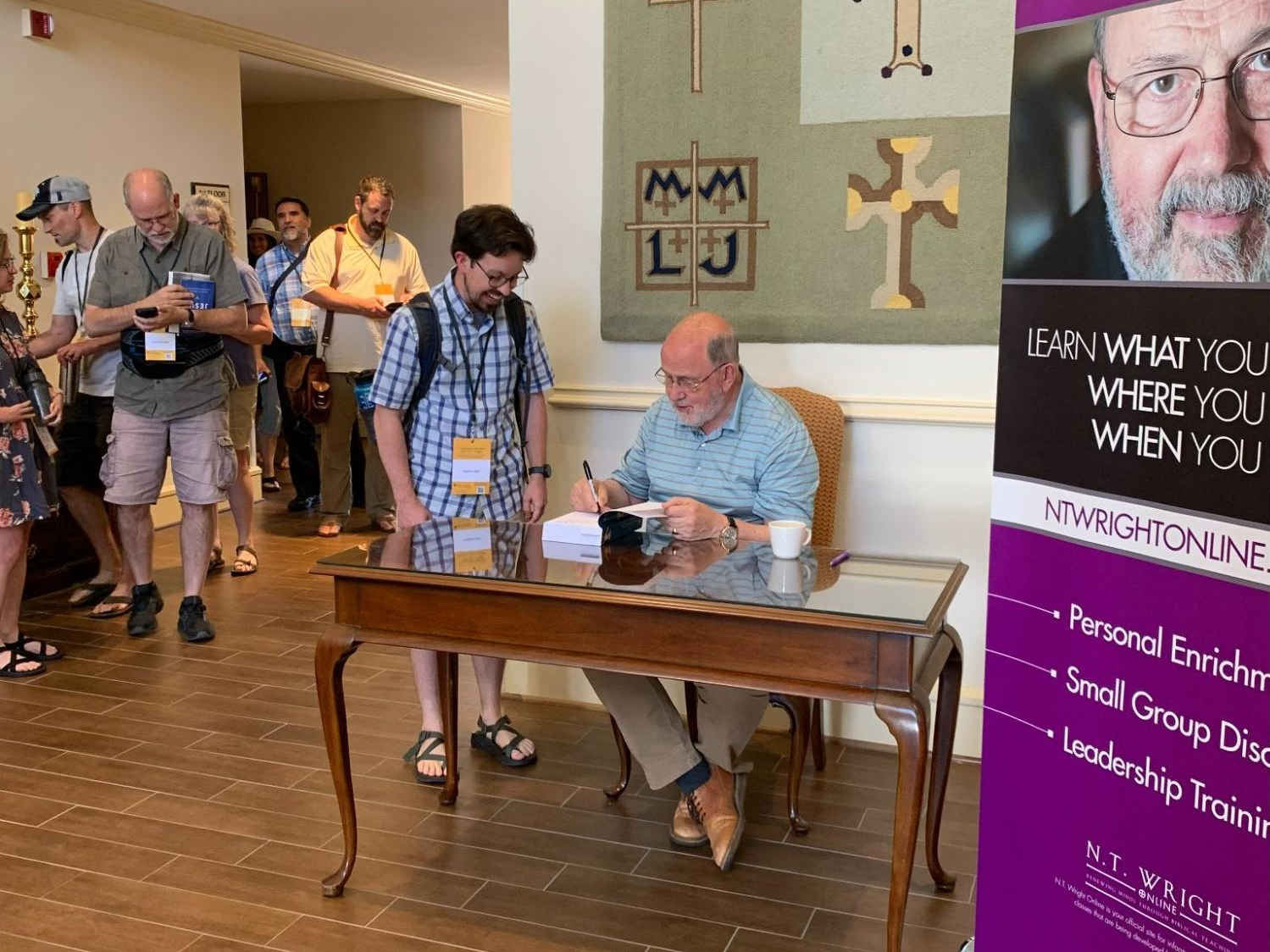NT Wright - Exploring A Leading Theologian's Ideas
You know, there are some voices that just seem to cut through the noise, offering fresh ways to think about old, important things. When it comes to understanding Christianity and the Bible in a deeper, more approachable way, the name NT Wright comes up quite a bit. He's a person who has spent a good deal of his life helping people connect with ancient texts and ideas, making them feel relevant for today's world, which is really something special, you know.
His work, actually, often touches on areas that many people find a bit puzzling or even, you know, hard to get their heads around. From exploring the writings of Paul in a new light to thinking about the resurrection of Jesus, he brings a kind of clear-headed perspective. It’s about seeing how faith and daily existence fit together, which is, honestly, a question many of us ponder, perhaps more or less often than we admit.
So, this article is going to take a closer look at NT Wright, what he's all about, and how his contributions have shaped discussions for so many. We'll explore his ideas, how he shares them, and even, as a matter of fact, some of the other meanings of "NT" that sometimes cause a little bit of confusion. It's really about getting a better sense of this remarkable individual and his lasting impact.
- Yankees Vs San Francisco Giants Match Player Stats
- %D8%B1%D8%AD%D9%8A%D9%84 %D8%B2%D9%88%D8%AC%D8%A9 %D9%8A%D8%B9%D9%82%D9%88%D8%A8
- S Huk
- Chad Smith
- Flying Fox Bat
Table of Contents
- Who is NT Wright – The Person Behind the Books?
- NT Wright's Big Ideas
- Connecting with NT Wright Online
- NT Wright on Timeless Questions
- NT Wright's Passion for Clarity
- Beyond NT Wright – Other Meanings of "NT" in Our World
Who is NT Wright – The Person Behind the Books?
When people talk about NT Wright, they are talking about an English Anglican bishop, a thoughtful theologian, and a person who has put out over seventy books. These books, you know, cover a wide range of topics related to Christianity and the Bible, making him a truly prolific writer. He has, in a way, dedicated his life to teaching and writing about these very significant subjects, which is quite admirable, really.
His career has seen him hold some pretty important positions. He was, for instance, the Bishop of Durham, a significant role within the Church of England, until August of 2010. After that, he moved into an academic setting, taking on the role of Chair of New Testament and Early Christianity at the School of Divinity at the University of St Andrews in Scotland. This kind of background, you know, gives him a really broad perspective on both church life and scholarly pursuits.
For those curious about some of his personal details, here's what we know from the information available. It's just a little glimpse into his background, you know, the basic facts that help you place him.
| Full Name | N.T. Wright (Tom Wright) |
| Born | 1948 |
| Nationality | English |
| Occupation | Anglican Bishop, Theologian, Author, Professor |
| Former Role | Bishop of Durham (until August 2010) |
| Current Academic Role | Chair of New Testament and Early Christianity, University of St Andrews, Scotland |
So, you see, he's not just someone who writes books; he's someone who has been deeply involved in both the practical side of church leadership and the academic pursuit of knowledge. This dual experience, arguably, gives his writing a particular kind of depth, making it accessible to many different kinds of readers, from scholars to everyday believers, which is pretty neat, actually.
What makes NT Wright's work so impactful and widely discussed?
A big part of what makes NT Wright's contributions so talked about, actually, comes from his specific areas of focus. He's very well-known for his extensive work on what's called the New Perspective on Paul. This way of looking at Paul's letters has really shifted how many people think about certain Christian ideas, particularly about how people become right with God. It's a topic that, you know, has generated a good deal of discussion and rethinking among theologians and ordinary folks alike.
Beyond that, he's also recognized for his deep explorations into the resurrection of Jesus. This is, of course, a central belief in Christianity, and Wright has offered really thoughtful insights into its historical and theological meaning. His writings, you know, help people grasp the significance of this event in a fresh way, connecting it to the broader story of God's work in the world. It’s pretty important stuff, really, and he handles it with a kind of careful consideration.
Another area where NT Wright has made a significant mark is in exploring the connection between theology and everyday existence. He doesn't see these as separate things; rather, he looks at how what we believe about God and the world should, in fact, shape how we live our lives. This emphasis on practical application is, you know, something that resonates with many people who are looking for faith that makes a real difference in their daily routines, which is something we all, in a way, hope for.
He's also spoken openly about the term "evangelical." He's mentioned that, you know, a lot of people have, basically, stopped using that word, especially since what he calls "the whole [Donald] Trump phenomenon." This suggests that even the labels we use to describe ourselves can become, perhaps, a bit complicated and need re-evaluation over time. It’s a candid observation, actually, about how cultural shifts can affect religious identity, and it's something many people have noticed, too.
How can you learn directly from NT Wright today?
For anyone wanting to hear directly from NT Wright, there are some great online avenues available, which is pretty convenient, actually. His website, ntwrightonline.org, is a key place where you can find resources. This site, you know, helps to develop online courses that feature Professor Wright himself, making his insights available to a wider audience, which is a really good thing.
These courses, you see, can be found on www.admirato.org. They offer a really comprehensive way to learn, including video lecture material where you can hear directly from him, as well as written curriculum that helps you dig deeper into the topics. And what's more, they often include discussion sections, which means you can, in a way, connect with others who are also exploring these ideas, making it a more interactive experience, you know.
You can also listen to him on podcasts. For example, the "Ask NT Wright Anything" podcast is a place where he, along with host Mike Bird, addresses all sorts of questions. It's a really good way to hear his thoughts on a variety of subjects, and it's, honestly, quite accessible for anyone with an internet connection. This format, you know, makes his scholarly work feel very approachable, which is something many listeners appreciate.
What are NT Wright's thoughts on pressing ethical and theological topics?
NT Wright has, in fact, weighed in on some really significant ethical questions, like the topic of abortion. On a June 1, 2025, episode of the "Ask NT Wright Anything" podcast, he and Mike Bird addressed these ethical questions. It's a very sensitive subject, of course, and his approach, you know, aims to bring theological thought to bear on real-world dilemmas, which is what many people look for in a theologian.
Interestingly, on June 2, 2025, there was also a report that NT Wright, described as a renowned Anglican theologian, advocated for abortion in certain circumstances. This particular statement, you know, apparently sparked a good deal of outrage among Christian circles. It just goes to show how complex and, perhaps, even controversial these kinds of discussions can be, even for someone as widely respected as he is.
He has also spoken about the topic of gender and how we talk about God. Wright recently emphasized that while God is beyond gender, using traditional male pronouns, like "Father," remains appropriate from a theological standpoint. This is, you know, when these terms are understood in light of what scripture actually says. It's a nuanced point, really, aiming to maintain traditional language while acknowledging God's transcendence, which is a common theological discussion.
Another question he has addressed is whether a Christian can be trans. On the June 1 podcast episode, a female college student from Germany asked this very question. Dr. NT Wright offered what was described as a "cautious" response. This kind of careful engagement with contemporary questions, you know, shows his willingness to think through new challenges from a theological perspective, which is, in a way, what a good scholar does.
Why does NT Wright believe the Bible should be easy for everyone to grasp?
One of NT Wright's deeply held convictions is about the Bible's accessibility. He has, in fact, stated that if the Bible cannot be understood by everyone, then it just isn't good news. This idea, you know, gets at the very heart of why the Christian message matters. It suggests that the core message should not be hidden away in complicated language or only for a select few, but rather for everyone, which is a pretty powerful thought.
He often points back to the very first days of the church, at Pentecost, as a kind of historical example. At that time, the good news about Jesus was, you know, translated into the everyday languages of ordinary people. This happened through the work of the Holy Spirit, and it caused the message to spread very quickly, almost like wildfire, to far-off places. This historical event, arguably, shows that the message was always meant to be broadly understood, not just by scholars, which is a key part of his outlook.
This commitment to making the message clear is, you know, something that drives much of his work. He wants people to truly grasp what the Bible is saying, not just intellectually, but in a way that impacts their lives. It's about bringing the ancient text to life for modern readers, which is, honestly, a huge undertaking but one he seems very dedicated to, you know. Glenn Packiam, who is an associate senior pastor at New Life Church and the lead pastor of one of its congregations, New Life Downtown, in Colorado Springs, Colorado, also emphasizes the importance of clear communication in faith, in a similar vein.
Beyond NT Wright – Other Meanings of "NT" in Our World
While we've been talking a lot about NT Wright, it's worth noting that the letters "NT" can, actually, stand for other things in different contexts. This can sometimes cause a little bit of confusion, so it's good to clear it up. For example, in the world of computers, "NT" often refers to "New Technology," and this is particularly true when we talk about operating systems, you know, like Windows NT, which was a pretty big deal in its time.
Windows NT, for instance, was quite different from earlier versions of Windows, like Windows 3.x, or even 95 and 98. Those older systems were, basically, built on top of DOS, meaning you had to start DOS first to get Windows going. But NT was, you know, its own independent system; it didn't need another system to kick it off. This meant, apparently, that starting with Windows 2000, which had an NT kernel, the chance of seeing a blue screen, that dreaded error, went down quite a bit, which was a welcome change for many users, really.
The "NT" in Windows also shows up in discussions about user accounts and permissions. You might hear about accounts like `Nt_authority\localservice`
- Alaska House Votes To Urge Trump To Keep Denali Name
- Shrek Lord Farquaad
- Fish Drawing
- When Is Memorial Day 2025
- Por Hu

Upcoming Events – N.T. Wright Online

Blog | Bible's Lessons Applied to Today's World

Blog | Bible's Lessons Applied to Today's World